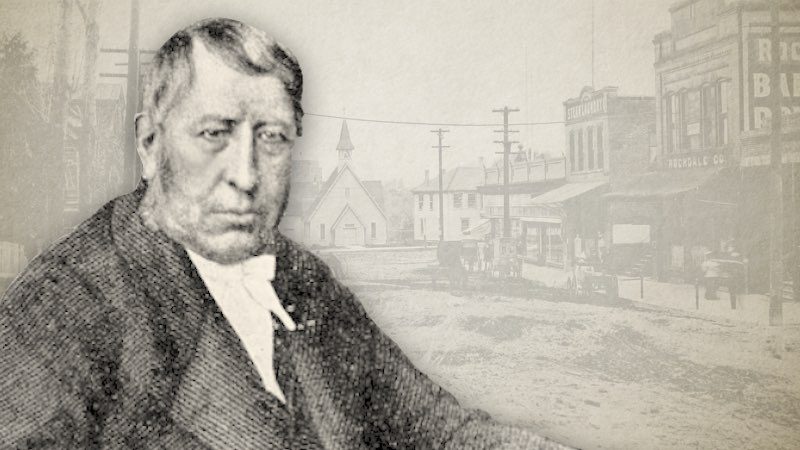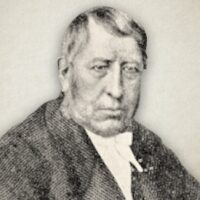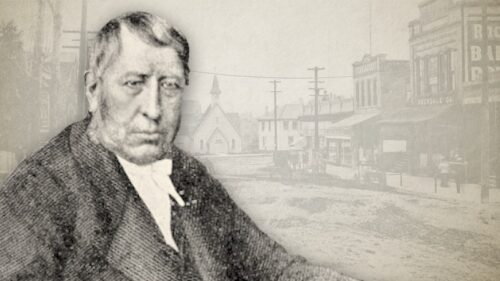
An Appreciation Letter Upon The Death Of John Kershaw
Gospel Standard 1870:
The Late Mr. Kershaw
Dear Friends,—I knew Mr. Kershaw for about 32 years, for about 27 intimately. Before I knew him I heard him spoken of as an Antinomian. I at that time was under deep distress of soul from law-work. When I heard him preach for the first time, I had never in my life heard a gospel sermon before. His sermon was the means of taking such a weight off my mind that I went home rejoicing in the God of my salvation. It was preached in a large club-room at Wadsworth, near Hebden Bridge, and the room was filled. Many of us went home talking of his sermon. By the Holy Spirit’s power and grace of God, the sermon just fitted my case, and gave me such new light that I shall never forget as long as my memory lasts. After that I heard him preach scores of good sound doctrinal, experimental, and practical sermons. A fellow-workman and I used to walk from our homes at Mytholmroyd to Rochdale, 12 miles there and 12 back, and returned home sometimes by Todmorden, making it three miles further, so that we could talk with others going that way who had been to hear him. Our hearts used to burn within us by the way, and we often had a week’s food in store to feed upon; and when Sunday came again we were off again and again.
I tell you these things to show you how the Lord blessed our dear friend to his people, many of whom, like us, came from the country round and round, and flocked to his chapel like doves to the window.
As a Christian adviser, I always found him to be depended upon, because he always took the Scriptures for his guide, and had such an aptitude to point out the right ones for the occasion. He was always for peace. “Blessed are the peace-makers, for they shall be called the children of God.” He once told me of being himself insulted at a funeral by a minister, and he was enabled, by the grace of God, not to resent it; but, his Master like, the first opportunity he had he returned good for evil. Seeing the minister one very wet day walking in the rain, he prevailed upon the driver of a coach to take him inside. The minister was so overcome with Mr. Kershaw’s kindness that he begged his pardon for the offence at the funeral.
Once, when I had received a large sheet-full of abuse from a person, I wrote him back what I thought a suitable reply, and I took it to Mr. K. for his opinion; but I shall never forget what a changed appearance my epistle had when my dear Christian father had pruned it, and just added to it, “A soft answer turneth away wrath, but grievous words stir up anger.”
He preached in many pulpits in and about London, and, I believe, as Mr. Taylor said at the grave, in almost every county in England; and he preached also in Scotland; and wherever he went his Lord and Master honoured the word spoken by him. Many times when I have accompanied him to the old Assembly Room, and other places in and about Halifax, when he has had hold of my arm on our way he has shaken like a leaf, and used to say, “O Samuel, the word shakes me almost to pieces.” But in a few moments after he had taken his text, he would speak forth the gospel of Jesus, so that even the weakest of God’s children might understand, and often, under his sermons, read their titles clear.
I will conclude. He has fought a good fight, and is sat down with Abraham, Isaac, Jacob, and all the redeemed family that are called home, singing unto the Lamb for ever and ever those grand songs which those alone can sing who are in the Lamb’s book of life. Amen.
Samuel Magson
Halifax
John Kershaw (1792-1870) was a Strict and Particular Baptist preacher. He was appointed the Pastor of Hope Chapel, Rochdale, serving this position for fifty-three years. John Hazelton wrote of him:
“His autobiography is one of the best books of its kind and one striking incident we will quote. It is his account of his interview in Edinburgh with Dr. John Duncan, often called "Rabbi" Duncan, because of his profound knowledge of Hebrew. Dr. Duncan (1796-1870) was Professor of Hebrew in New College, Edinburgh, and was a man of the most acute and profound intellectual powers, and at the same time a deeply spiritual and Scriptural preacher. In learning and associations he was at the antipodes of plain John Kershaw. In November, 1861, Mr. Kershaw preached in Edinburgh, arrangements having been made through Lady Lucy Smith, who was desirous that his original and powerful ministry should be exercised there. He writes:—"Another of my visitors was Dr. Duncan, who I was told by one of the ministers understood fourteen languages and that there was only one in the City who surpassed him in learning. He told me he had heard me preach three sermons, and he quite agreed with me in every statement that I had made, both in doctrine, experience and practice, save one, and that I had not fully entered upon, namely, 'the extent of the call of the gospel.' He candidly told me that his human learning had for years past been a great hindrance to his coming to a saving knowledge of the truth, and he had proved Paul's words, that the world by wisdom knew not God; and referring me to 1 Cor. 1:21,22 said he was for a long time like a wandering star or a ship at sea without a compass, ready to settle in every 'ism'—sometimes Arianism or Socinianism; and sometimes his mind was bordering upon infidelity. He declared himself much ashamed of many of his theological productions. When it pleased the Lord to work in his soul by the power of the Spirit he was for a long time in a distressed state, not knowing what to do to get peace and comfort. A conversation with another minister was made useful to him and he was enabled to go to the feet of Jesus as a little child and beg Him to teach him, a poor ignorant sinner, by His Spirit and His Word. The Lord graciously heard prayer and revealed Himself as his Saviour and Redeemer. We spoke of Scott's 'Force of Truth,' in which the author confessed he had been priding himself on his human attainments, opposing the doctrines of grace, and despising his neighbour, that dear man of God, John Newton, who eventually was made a blessing to him; also of John Berridge, who preached some years before the Lord stripped him and caused him to flee to Jesus for refuge. The conversation I had with this man I hope never to forget."
John Kershaw Sermons




